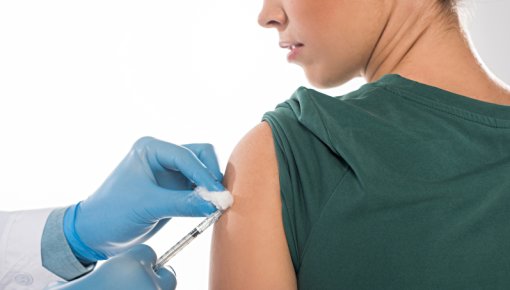Bergman H, Buckley BS, Villanueva G et al. Comparison of different human papillomavirus (HPV) vaccine types and dose schedules for prevention of HPV-related disease in females and males. Cochrane Database Syst Rev 2019; (11): CD013470.
Gilson R, Nugent D, Werner RN et al. 2019 IUSTI-Europe guideline for the management of anogenital warts. J Eur Acad Dermatol Venereol 2020; 34(8): 1644-1653.
Henderson JT, Henninger M, Bean SI. Behavioral Counseling Interventions to Prevent Sexually Transmitted Infections: A Systematic Evidence Review for the U.S. Preventive Services Task Force. (AHRQ Evidence Syntheses; No. 192). 2020.
Lukács A, Máté Z, Farkas N et al. The quadrivalent HPV vaccine is protective against genital warts: a meta-analysis. BMC Public Health 2020; 20(1): 691.
Obiero J, Ogongo P, Mwethera PG et al. Topical microbicides for preventing sexually transmitted infections. Cochrane Database Syst Rev 2021; (3): CD007961.
Robert Koch-Institut (RKI). Empfehlungen der Ständigen Impfkommission (STIKO) beim Robert Koch-Institut. 2025.
Robert Koch-Institut (RKI). RKI-Ratgeber Humane Papillomviren. 2023.
Tejada RA, Vargas KG, Benites-Zapata V et al. Human papillomavirus vaccine efficacy in the prevention of anogenital warts: systematic review and meta-analysis. Salud Publica Mex 2017; 59(1): 84-94.
Villa A, Patton LL, Giuliano AR et al. Summary of the evidence on the safety, efficacy, and effectiveness of human papillomavirus vaccines: Umbrella review of systematic reviews. J Am Dent Assoc 2020; 151(4): 245-254.
IQWiG health information is written with the aim of helping people understand the advantages and disadvantages of the main treatment options and health care services.
Because IQWiG is a German institute, some of the information provided here is specific to the German health care system. The suitability of any of the described options in an individual case can be determined by talking to a doctor. informedhealth.org can provide support for talks with doctors and other medical professionals, but cannot replace them. We do not offer individual consultations.
Our information is based on the results of good-quality studies. It is written by a team of health care professionals, scientists and editors, and reviewed by external experts. You can find a detailed description of how our health information is produced and updated in our methods.

